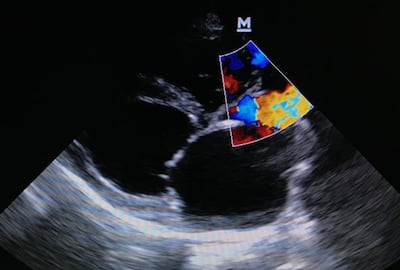Device Area
In this week’s Digital Health Roundup, Medtech Insight’s Ryan Nelson highlights Click Therapeutics’ FDA-cleared digital therapeutics (DTx) for depression and Sinaptica Therapeutics’ personalized neuromodulation for Alzheimer’s patients. Marion Webb discusses her interview with MindMaze’s John Krakauer on their gaming-focused DTx to help people recover from serious brain injuries. Elizabeth Orr introduces new voting members of the new Digital Health Advisory Committee and Natasha Barrow discusses Hello Heart’s new symptom-tracking feature in their heart-focused app.
This week, Establishment Labs Holdings announced the FDA gave it premarket approval for Motiva breast implant, Cologuard lands FDA approval for Cologuard Plus and GE HealthCare gets FDA nod for a new imaging agent. The FDA announces another expansion for TAP into ophthalmology and radiology. The AAMI and CTA will join forces to develop standards for AI and ML-enabled health care products.
Patrick Alexandre, Crossject CEO, discusses crucial developments happening for Zeneo, a needle-free injector, functioning intramuscularly to administer medication in a tenth of a second.
Biopharmaceutical giant AstraZeneca has partnered with start-up “unicorn” Owkin to develop an AI-powered tool to prescreen for gBRCA mutations on the basis of morphological features in digitized pathology slides. Built on extensive, high-quality data sourced from the France-based PortrAIt consortium, the AI will help to prioritize patients for further testing, streamlining the diagnostic process, Owkin says.
An additional $50m brings the neurovascular intervention specialist’s total Series F funding to $82m. Route 92 says it will use the capital to build its sales and support teams and pursue regulatory authorizations around the globe for its FreeClimb portfolio while advancing its SUMMIT MAX clinical trial for the investigational Monopoint Reperfusion System.
TRiCares announced first implantation of the Topaz transfemoral tricuspid heart valve replacement system as part of the company’s EU pivotal study. If all goes to plan, the device will compete with Edwards’ Evoque system. The announcement follows the company’s $50m series D funding raise in July.
Tim Schmid, executive VP and worldwide chairman of J&J MedTech, expects Shockwave, acquired in April, and Abiomed, purchased in late 2022, to be “long-term gems” for the company. Cardiovascular is among higher-growth segments where J&J has concentrated investments in recent years, along with robotic surgical systems.
The US FDA has published a trio of draft guidance documents for its Assessment Scheme for Conformity Program, which began as a pilot in September 2020 to capitalize on the role of standards in the regulation of medical devices.
Tim Schmid, executive VP and worldwide chairman of J&J MedTech, expects Shockwave, acquired in April, and Abiomed, purchased in late 2022, to be “long-term gems” for the company. Cardiovascular is among higher-growth segments where J&J has concentrated investments in recent years, along with robotic surgical systems.
This week, Neuralink announced it received US FDA breakthrough device designation for a device to restore sight; medtechs Discure and DeepLook secured new funding; FDA pump recalls from B. Braun Medical and Fresenius Kabi; Axonics prevails in patent infringement lawsuit with Medtronic; Merit Medical buys Cook Medical for $210m.
UK-based Biocomposites will begin selling in the UK its next-generation osteoinductive bone graft substitute, NanoBone, which came with its acquisition of Artoss GmbH in June 2023. Meanwhile, the company has purchased remaining shares in the manufacturers of SYNICEM and Subiton antibiotic bone cements and preformed antibiotic-loaded spacers.
Click Therapeutics reports positive Phase 3 clinical data for CT-132, a digital therapeutic intended as an adjunctive treatment of episodic migraine. The company is pursuing FDA clearance and actively exploring opportunities to offer a drug-digital combination therapy with added clinical benefit that provides “a single, integrated experience for the patient, prescriber and payer.”
This week, two device testing labs in China landed FDA warning letters; refunds for 1Health.io clients; FDA AR/VR product list expands.
The firm’s dual-chamber leadless pacemaker system with is expected to be a growth driver for Abbott and already has acquired approximately 30%-40% of market share from Medtronic since its approval by the US FDA in July 2023, according to GlobalData.
With the reversal of the Chevron doctrine in June, lower courts will now have more say in deciding regulatory statutes when the language is murky. But will that open the door to more legal challenges from the healthcare industry against government regulations it finds unfavorable? A pair of legal experts recently discussed the potential implications of the Court’s decision.
Edwards Lifesciences’ Critical Care business “invented the hemodynamic monitoring category, and its solutions are currently used in more than 10,000 hospitals globally to better understand the cardiovascular condition in real-time for critically ill patients, which helps improve outcomes,” says BD, which sees synergies and new innovation opportunities across the groups’ data sets and platforms. Acquired for $4.2bn cash, Critical Care generated more than $900m in revenue in 2023.
This week, a Delaware court awarded Auris Health shareholders $1bn in a lawsuit against Johnson & Johnson; Abbott recalled some FreeStyle Libre 3 sensors; and McKesson purchased a controlling interest in a Florida cancer care chain.
A key differentiating feature between Medtronic’s Aurora extravascular ICD and Boston Scientific’s Emblem subcutaneous ICD, Aurora’s anti-tachycardia pacing was successful 77% of the time, in line with transvenous ATP rates, and shocks were avoided in nearly half of spontaneous arrhythmic episodes due to the availability of ATP, across average pivotal trial follow-up of 30.6 months.
Amferia is developing an antimicrobial peptide hydrogel dressing to combat infections in acute wounds in humans and veterinary contexts. Supported by €1.2m of new venture capital financing, the company is planning pivotal clinical studies to support an FDA application later this year and CE mark submission in 2026-2027.
The German federal cabinet has passed the health ministry’s rejigged Healthy Heart Law draft, which features early diagnosis, restructured treatment planning and improved therapeutic care. Cardiologists and the diagnostics industry approve, but other parties have criticized the plan.
















